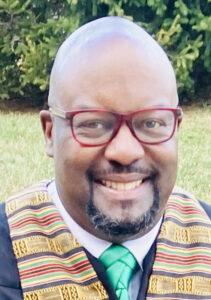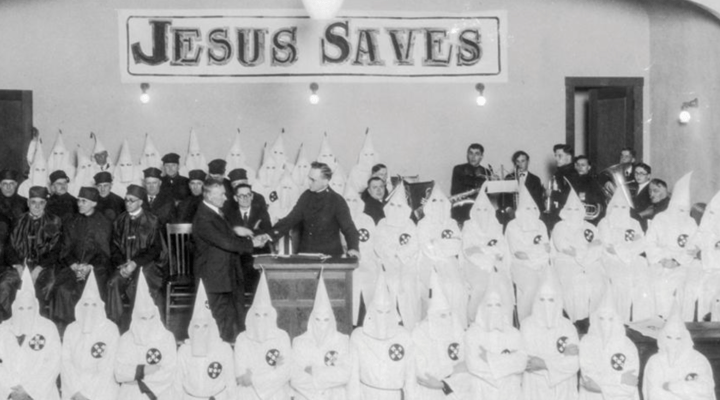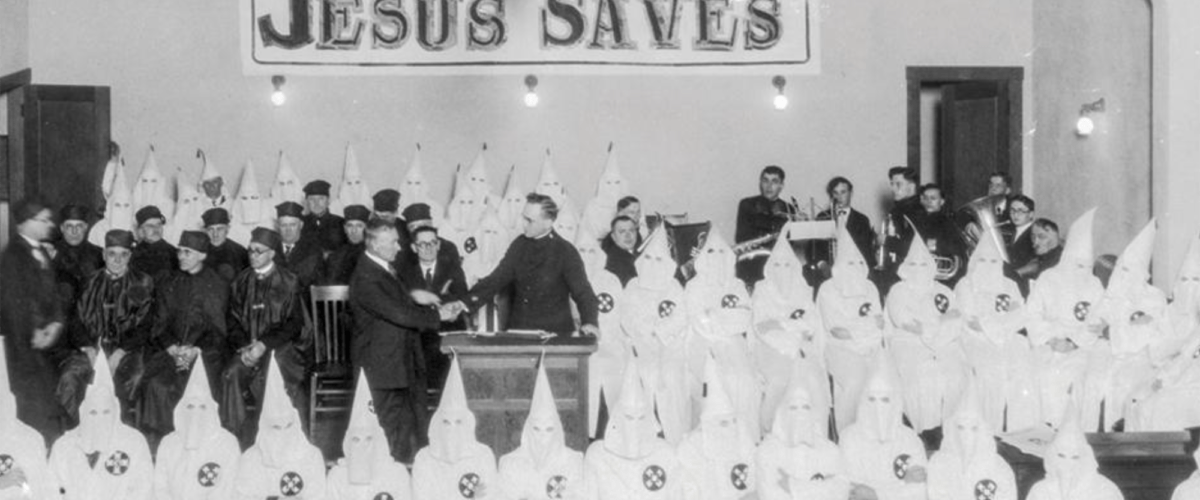White supremacy is the erroneous belief that white people are superior to people of other races or ethnicities and should possess power and control in all areas of life.
In fact, “race” was socially constructed centuries ago to ensure white dominance. Today, the structures of white supremacy remain deeply entrenched in America.
White Christians are best positioned to oppose the sinful ideology and practices of white supremacy. After all, the myth of white supremacy has been embraced by many white people, to their benefit. Further, given the power dynamic that exists in society, white Christians have a unique role to play in dismantling white supremacy.

Joel Bowman
Philippians 2:3-4 says, “Do nothing out of selfish ambition or conceit, but in humility consider others as more important than yourselves. Everyone should look not to his own interests, but rather to the interests of others.” With respect to white supremacy, white Christians must willingly look to the interests of their siblings of color.
Here are three specific things white Christians can do to oppose white supremacy:
Lament
To lament is to express grief, sorrow, disappointment or mourning. There are many biblical examples of lament. In the Bible, lament is often presented as a form of worship practiced corporately by God’s people, through which they share in God’s own grief for sin. Throughout American history, white supremacy has given people of color much to lament. In heeding Jesus’ call to neighbor love, white Christians must join the laments of people of color. Romans 12:15 instructs, “Weep with those who weep.”
“White Christians must come alongside their siblings of color and endeavor to see and feel the effects of white supremacy.”
Empathy is essential to lamentation. White Christians must come alongside their siblings of color and endeavor to see and feel the effects of white supremacy. A practical way to do this is by holding space for people of color in times of corporate worship. Pastors and ministry leaders in predominantly white contexts should provide people of color the opportunity to publicly share their experiences, as well as giving guidance for how their faith communities can best support them. Centering people of color communicates the idea that they are valued no less than the white majority.

In Tampa, Fla., a mural showing George Floyd, Breonna Taylor, Trayvon Martin and Ahmaud Arbery.
True lamentation involves white Christians openly acknowledging the extent to which people of color have been harmed by white supremacy. A tendency exists on the part of many white Christians to minimize or rationalize behavior rooted in white supremacy. Instead of being defensive, white Christians must focus on actively listening to people of color as they recount their experiences with white supremacy. Rather than accusing people of color of “playing the race card,” white Christians need to give deference to them, earnestly seeking to grow in understanding.
Repent
Many white Christians are quick to say, “I’m not racist,” without engaging in any introspection. But white supremacy is so prevalent, it’s impossible for white Christians not to be affected by it in some way. As white Christians identify aspects of racism and white supremacy within them, they must repent of it. Fundamentally, biblical repentance requires a change in one’s thinking.
Romans 12:2 mentions the “renewing” of the mind. Repentance involves the renewing of the mind to align with God’s will.
White supremacist views, however innocuous some of them may seem, are antithetical to God’s will. Romans 12:3 says, “Do not think of yourself more highly than you ought.”
“A changed mind is the garden where changed behavior blooms.”
A changed mind is the garden where changed behavior blooms. That said, such repentance does not happen in isolation, it happens within a community where there is loving accountability.
In view of this, white Christians should humbly submit themselves to the guidance of their siblings of color as it pertains to white supremacy. Christians of color know all too well what white supremacy looks like. Consequently, they can bring to the attention of white Christians any blind spots they may have in this area.
White Christians can engage in repentance by exposing themselves to scholarly writings and materials that address the topic of white supremacy. They should be intentional about listening to voices outside of their “tribe” instead of relying on voices that confirm their biases and allow them to remain in their comfort zone.

Neo Nazis, Alt-Right, and White Supremacists encircle and chant at counter protestors at the base of a statue of Thomas Jefferson after marching through the University of Virginia campus with torches in Charlottesville, Va., USA on Aug. 11, 2017. (Photo by Samuel Corum/Anadolu Agency/Getty Images)
A major aspect of repentance, as revealed in Scripture, is making restitution. Restitution involves the restoration of something lost or stolen. Second Samuel 21 provides a biblical precedent for restitution. In this passage, God required David to make restitution for Saul’s sin against the Gibeonites. Although David was not personally responsible for Saul’s sin, he still reaped the benefits of that sin. Therefore, it was incumbent upon David to make it right with those who had been done wrong.
The concept of reparation is closely related to restitution: restoring to good condition that which has been damaged. Throughout the history of American Christianity, much has been taken from people of color in the name of Christ. What has been taken includes money, material goods, labor, land and, in the case of Native Americans, their children.
Damage continues to be done to people of color due to the pervasive presence of white supremacy. The damage is far-reaching and multi-generational, and it includes psychological trauma as well. Wherever damage has been done, restitution and repair are required.
“Wherever damage has been done, restitution and repair are required.”
At present, a plethora of white-run Christian institutions continues to benefit from the seeds of white supremacy planted long ago. These institutions include churches, seminaries and entire denominations. In keeping with the precepts and principles of Scripture, these institutions rightfully owe reparations to people of color. In the book Reparations: A Christian Call for Repentance and Repair, co-authors Duke Kwon and Gregory Thompson indicate that reparations are about “truth, wealth and power.”
There are a number of ways reparations could be paid. For instance, white-run Christian institutions could invest funds in Christian institutions run by African Americans to aid their operations, and many non-monetary ways exist in which reparations could be paid. It costs nothing for a white-run Christian entity named after an unrepentant slaveholder to change its name to symbolize institutional repentance.
Dissent
White Christians must voice dissent to white supremacy. This requires calling it out by name. White Christians can do this in their families, friendship circles, places of work and in their faith communities. They also can express dissent during public protests and demonstrations. White Christians should act to oppose any policies and practices that threaten the flourishing of communities of color.
“Apathy is the enemy of dissent; it enables white Christians to remain silent about white supremacy.”
Apathy is the enemy of dissent; it enables white Christians to remain silent about white supremacy. After the killings of the “Emanuel 9,” Ahmaud Arbery, Breonna Taylor and George Floyd, most prominent white Christian leaders said nothing about the role white supremacy played in those deaths. Sadly, many have been silent about the slaughter of Black bodies in Buffalo, N.Y., by a white supremacist.
The silence of white Christian leaders in the face of white supremacy makes them complicit in its perpetuation. Such silence shows total disregard for the imago Dei (“image of God”) in people of color. In essence, silence sends a deafening message: “You don’t matter to us!”
White Christians no longer can leave the gross evil of white supremacy to be opposed primarily by people of color. This is not a “Black problem,” it is a human problem. White supremacy must be opposed by every true follower of Christ, for it negatively impacts all image-bearers, regardless of background. White supremacy even has a detrimental impact on those who perpetuate it.
Mind you, all those who take a stand against white supremacy will be criticized, marginalized and dismissed. They will be mislabeled and misunderstood, even by those closest to them. Some who take a stand will lose friends, connections, positions and even income. Nevertheless, the words of Jesus are just as true today as when he first said them: “Blessed are those who are persecuted because of righteousness, for the kingdom of heaven is theirs.”
Joel A. Bowman Sr. is a native of Detroit and serves as the founder and senior pastor of Temple of Faith Baptist Church, in Louisville, Ky. He also maintains a practice as a licensed clinical social worker with nearly 30 years of experience in the mental health field. His commentaries and poems have been printed in numerous publications. Joel and his wife, Nannette, have three children, Kayla, Katie and Joel Jr. Follow him on Twitter @JoelABowmanSr.
Related articles:
Now is the time when we need to hear white evangelical leaders refute white supremacy | Opinion by Joel Bowman Sr.
Ideas for churches studying the need for reparations | Analysis by Andrew Gardner
What to do if you unearth a history of slavery in your church, college or institution?


